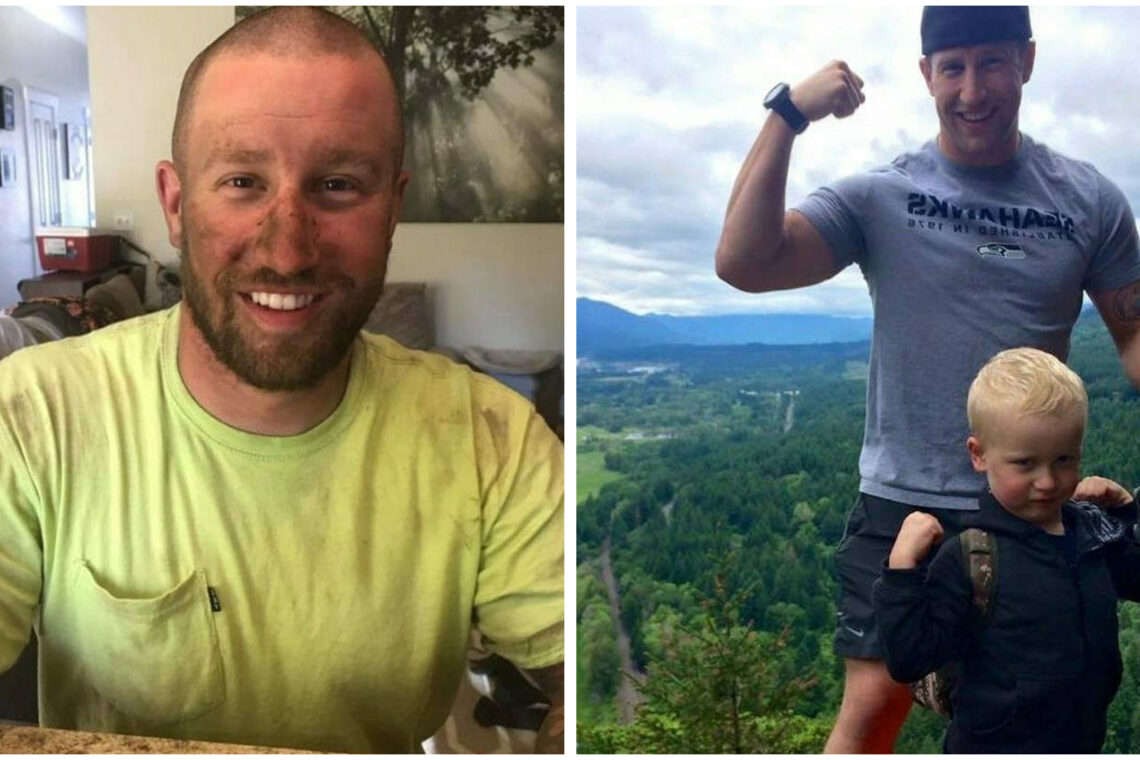
One day, Andy Ross, a resident of Washington State, was at the grocery store after a long day of work. Like many who work in labor-intensive jobs, Andy was dusty and a bit grimy from his shift in the woods, but he was simply going about his usual evening errand. As he walked through the aisles, a young girl nearby caught sight of him. The girl was staring, clearly curious about his appearance, which Andy found understandable. After all, kids often look longer when they see someone a bit different or unusual.
However, things took a different turn as Andy and the girl’s mother ended up close to each other in line. The little girl continued to watch him, but this time her mother noticed and, trying to redirect her daughter’s attention, told her to stop staring. This would have been a small moment for Andy, likely one he would have quickly forgotten—until he overheard what the mother whispered next. She leaned down to her daughter and quietly said, “That is why you need to stay in school.”
It was a subtle remark, but to Andy, it was loud and clear. The woman was making a judgment based on his appearance alone, suggesting to her daughter that people who look like Andy—dirty from a day’s work, dressed in clothes not suited for an office—are somehow less educated or successful. Instead of ignoring the comment, Andy felt a responsibility to set the record straight, both for the mother and her impressionable daughter.

After the encounter, Andy took to social media to share his thoughts and his side of the story. He felt it was important to challenge the assumptions made about him based solely on his appearance. In his heartfelt message, he explained that many people like him, who might look rugged or even “rough around the edges” at the end of a workday, are often far from what people may assume.
Andy started his post by addressing the mother’s assumption about his education level. He made it clear that he was far from uneducated. In fact, Andy shared that he held a college degree and several advanced certifications in the medical field. With a diploma and professional training behind him, Andy wanted others to realize that education and appearance don’t always correlate. He pointed out that assuming a person’s intelligence or success level based on their looks can be a very narrow perspective, one that overlooks the diversity of paths people take to find fulfillment in their careers.
Andy went on to discuss his tattoos, something he sensed may have also influenced the mother’s perception. His arms were covered in meaningful ink, each piece representing a different chapter of his life. Andy explained that his tattoos weren’t just for decoration but were deeply personal. They were symbols of his dedication to his country, reflecting the time he spent as a special operations medic. Each tattoo told a story of pride, service, and sacrifice. He wanted to challenge the idea that tattoos are somehow unprofessional or indicative of a lack of seriousness. On the contrary, Andy’s tattoos were a source of pride, symbols that carried significant meaning and spoke to his experiences in ways that words could not.

Beyond his education and tattoos, Andy also spoke about his love for the outdoors, something the woman might have overlooked. On that day, he had been wearing a hat with an elk on it, a symbol that held meaning for him. As co-owner of an outdoor company called Evergreen State Outdoors, Andy was passionate about nature, conservation, and the freedom that came with working in the wilderness. His hat wasn’t just an accessory; it was a nod to the lifestyle he valued. By running his own business, he was also supporting his right to hunt and responsibly own firearms—values he held dear and chose to incorporate into his livelihood. This connection to nature and his support for conservation efforts were an important part of who he was.
When it came to his job itself, Andy acknowledged that his work in construction left him looking a little messy at the end of the day. But that wasn’t something he was ashamed of. Instead, he took pride in the fact that he contributed to building the infrastructure and foundations that make modern society possible. He knew he was part of a profession that often goes unappreciated but plays a vital role in the community. The long hours and physical demands were worth it to him because they allowed him to be out in the world, working with his hands and creating something tangible.
Andy had tried working at a desk after his time in the service, but it hadn’t suited him. He realized that he felt happiest and most fulfilled when he was outdoors, even if it meant getting dirty in the process. His work in construction paid well, provided benefits, and gave him the financial stability to support his family. For Andy, success wasn’t defined by a clean, polished appearance or a traditional office job; it was about doing what he loved, providing for his family, and finding purpose in each day.
In his message, Andy wanted to remind others that judging someone by appearances can lead to misunderstandings. He hoped his story would inspire people to think twice before making assumptions about others based on surface-level impressions. He didn’t mind being dirty after a day’s work; it was simply a sign that he was doing what he loved and was proud of it. Andy’s post became a testament to the value of hard work, the diversity of career paths, and the need for open-mindedness when it comes to understanding other people’s choices.
Through his post, Andy aimed to challenge the stereotypical beliefs that some people hold. He wanted to show that education, intelligence, and success come in many forms and that a person’s outward appearance doesn’t necessarily reflect their story, their values, or their capabilities.